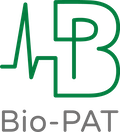
- Diese Veranstaltung hat bereits stattgefunden.
KIWI-biolab at Digital Life 2024 in Trondheim
Oktober 14 ; 12:00 – Oktober 15 ; 13:00
KIWI-biolab at Digital Life 2024 in Trondheim
Dr. M. Nicolas Cruz B. – head of the KIWI-biolab at TU Berlin – will talk about the role of AI and robots in bioprocess engineering at Digital Life 2024 on October 14 at 13:15 – 14:00: „Towards the self-driving biolab: The role of AI and robots in bioprocess engineering“ (tentative title)
He works intensively in the fields of bioprocess digitalization, model-based tools for biotechnology and biopharma, High Throughput Bioprocess Development, and self-driving biolabs.
The Chair of Bioprocess Engineering at TU Berlin including the KIWI-biolab is a member of the Bio-PAT network.

About the conference
Digital Life 2024 is the annual conference, which is hold together with the Research School annual conference.
The Research School Conference is all-inclusive for Research school members.
Dinner and lunch are included in the conference free of charge for all conference attendees.
DLN will organize bus transport to and from Oslo airport, Gardermoen at specific times.
Poster session
All participants are encouraged to present a poster sharing their research (completed results or planned work). Poster presenters are expected to stand at their poster during the poster session Monday 14 October from 17:00-18:30. Abstracts must not exceed 200 words and must be submitted in .pdf file format. In order to make the poster fit on the board, the poster must not exceed the following measurements: Width 120 cm x Height 180 cm. Presenters are responsible for printing and mounting the poster at the conference. Maximum 30 posters will be selected to present, you will be notified if you are selected. The prize for best poster presentation is NOK 5000. Submit your poster abstract here by 15 September.
Workshop option 1: Could chatbots help devise the next pandemic virus?
This question has been a concern that top government officials and tech leaders have raised over the last year. An MIT study in spring 2023 found that students could use chatbots to gain the know-how to devise a bioweapon. In advance of a UK summit in autumn 2024 bringing global political and tech leaders together, British Prime Minister Rishi
Sunak warned that AI could make it easier to build biological weapons. And in the United States, the Biden administration issued a landmark safety that included a plan to probe how emerging AI systems might aid in Executive Order on AI bioweapons plots. This workshop will take a hands-on approach to consider the biosecurity risks of Large Language Models and current initiatives by governments, industry and other stakeholders to mitigate against these biosecurity risks.
Responsible for the workshop: Filippa Lentzos
Workshop option 2: Innovation: take a Nano MBA
More information coming very soon!
Responsible for the workshop: Silvija Seres
Workshop option 3: How will today’s research change cancer care? Play to find out!
This workshop invites you to explore the critical topic of precision medicine in cancer through a fun and unique card game designed to SPARK insightful discussions. Everyone has a unique perspective, and your voice matters in the debate about how research can impact patient care.
How will today’s technology shape the future of cancer medicine? What are the challenges ahead? What are we missing in ensuring responsible and inclusive research? And, what role does each of us play in this matter?
This activity is open to everyone—whether you’re in the lab, clinic, or even working with salmon or AI—because the future of cancer medicine touches all of us. You’ll leave with new insights that not only empower you as a researcher but also highlight the importance of connecting our work to real-world outcomes. Join us to play and make a difference for both science and society with SPARK (Sharing Perspectives And Reinforcing Knowledge)!
Responsible for the workshop: Viviam Bermúdez
Workshop option 4: Storytelling with Science
Framing the facts to reach a wide audience and make an impact.
Storytelling and visuals have become a bigger part of being a scientist. Our work will make a bigger impact if it is shared outside of the research community, with policymakers, funders, stakeholders, and the public. How can we adjust our technical language to deliver a message that people find valuable, without feeling watered-down or inaccurate? Learn how to pitch your research story to a non-academic audience using straightforward language, catchy images, and mainstream media (including social media). You’re welcome to bring ideas from your own research to develop together in this workshop.
Responsible for the workshop: Kam Sripada
Conference Website with program, speakres, etc.:
Registration for the conference

